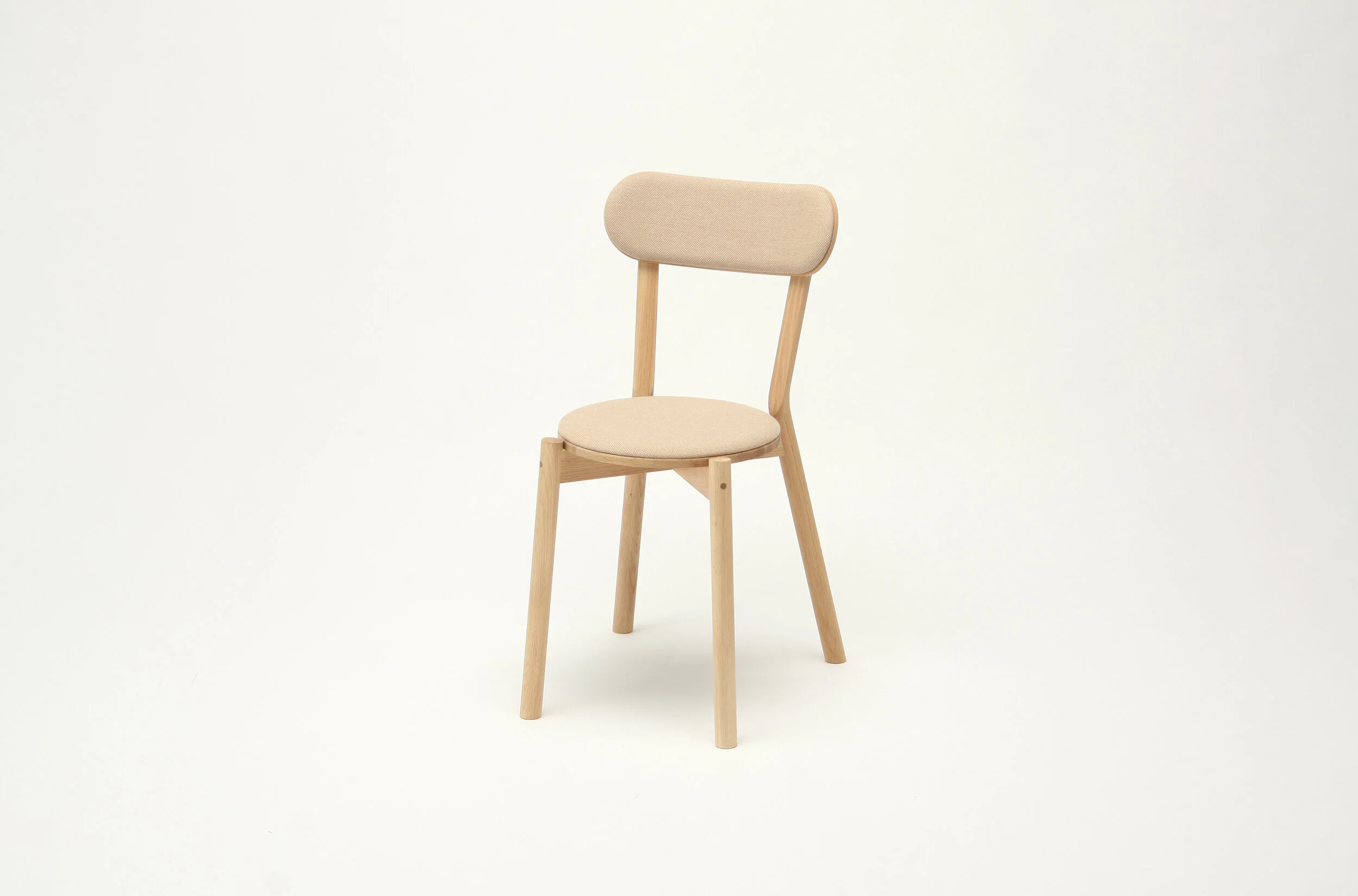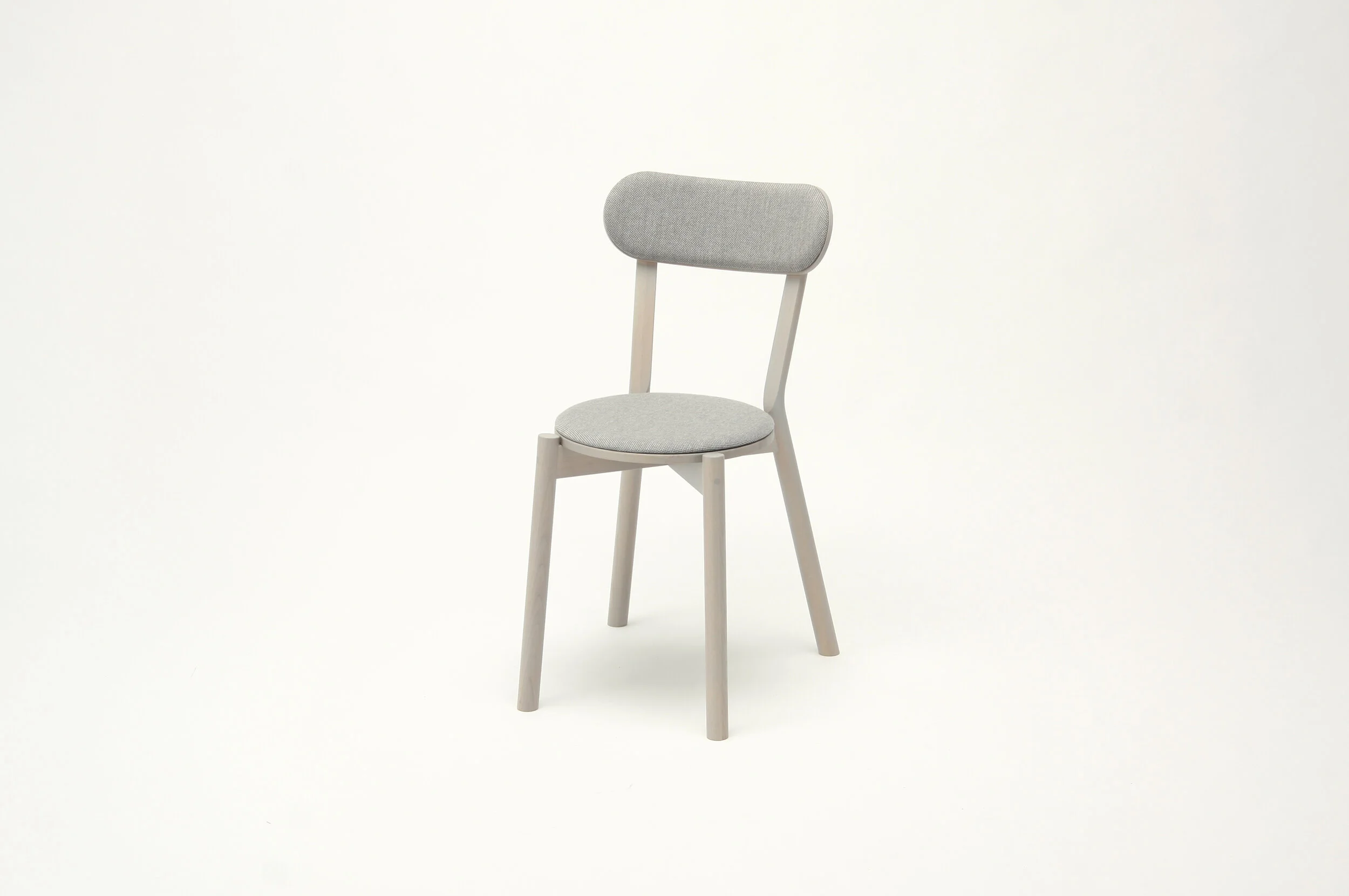Castor Chair Pad
Estimated delivery: 8 to 16 weeks after purchase.
Designed by Big Game.
The Castor Chair is an everyday icon based on the ergonomics of a classic chair found in traditional Swiss cafés. Light (4.3 kg), compact and comfortable, the chairs are suited to both domestic and commercial spaces. The chair’s design incorporates fine details into a simple aesthetic. The backrest, back legs and joints have been carefully engineered for maximum comfort, while the transparent color finish accentuates the texture and robust nature of the Japanese oak.
The upholstered version, Castor Chair Pad (4.8kg), offers extra comfort through the addition of slim yet soft cushion pads, which are covered with a durable fabric that matches the color of the frame.
W440×D515×H805×SH460
Made In Japan
All items come with 3-Years Structural Warranty.
Delivery charges separately
Note: This product requires to be indented. Please contact us for further assistance. Call us @ +65 6259 2609 or Email us @ sales@retrocolony.com
BIG-GAME is a design studio founded in 2004 by Grégoire Jeanmonod (Swiss, 1978), Elric Petit (Belgian,1978) and Augustin Scott de Martinville (French, 1980). Based in Lausanne, Switzerland. BIG-GAME designs objects for companies such as Moustache, Galerie Kreo, Praxis or Materia. Their creations are part of the collections of the Zürich Museum of Design, the Musée du Grand-Hornu, the Centre Georges Pompidou as well as the French National Fund of Contemporary Art. Their works have been shown in various exhibitions and been published in major magazines. The book ‘BIG-GAME Design Overview’ was published in 2008 on the occasion of their first monographic exhibition in a museum. Along with their design practice, the three founders of BIG-GAME are also professors at the ECAL/University of Arts and Design in Lausanne, and won the Swiss Federal Design Award in 2006 and 2010. The three designers draw on a vast repertory of ideas and put them nonchalantly into unexpected contexts, following the credo “Confrontation is giving birth to progress”.



